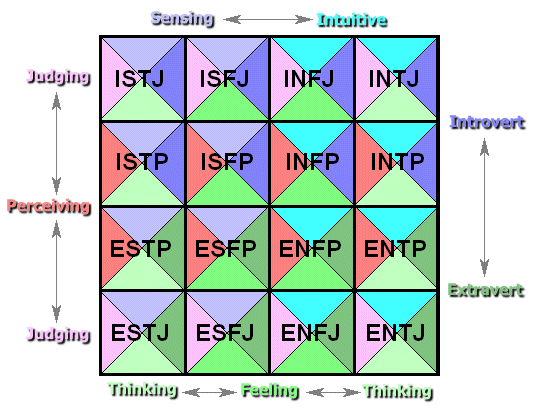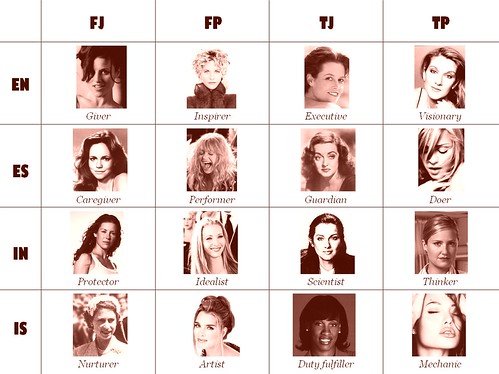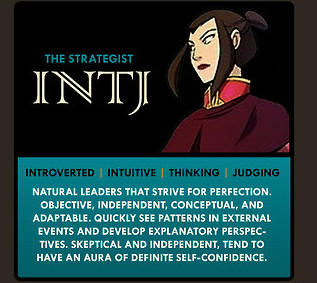
About
Myers Briggs Personality Types are a group of 16 distinct classifications of personalities individuals could exhibit. The Myers Briggs Personality Type Indicator has gained popularity in fandoms and has been used to identify characters to each of the personality types in the chart. Moreover, the personality types themselves have received their own iterations, symbols, and justifications from fans.
Origin
The Myers–Briggs Type Indicator (MBTI) assessment is a psychometric questionnaire designed to measure psychological preferences in how people perceive the world and make decisions. These preferences were extrapolated by Katherine Cook Briggs and Isabel Briggs Myers from the theories proposed by world renowned psychologist Carl Jung. The indicator was invented during World War II in the 1940s with the belief a knowledge of personality preferences would help women who were entering the industrial workforce[1].
Spread
The earliest known instance of the Myers Briggs Type Indicator surfacing online is in a blog post published by Malcolm Gladwell on September, 2004 titled ‘Personality Plus’ at Gladwell.com which criticized the M.B.T.I. that it ‘has a large problem with consistency’ and its founders ‘did not actually understand Jung at all’[2].
The earliest known instance of characters being associated with the 16 personality types was found in a blog post published by user Peter on June 14, 2006 titled ‘Myers-Briggs typology: I’m an ENFP’ on blog.forret.com [3]. The blog post was supportive of the Myers Briggs Personality Indicator and comments that it is more or less a more credible form of astrology, and presented an image of the MBTI chart that showed female actresses that befit their given personality type.

On April 6, 2013, the blog A Little Bit of Personality was made. The blog is currently active and is dedicated to the Myers Briggs Personality Type Indicator, often posting summaries and explanations to how fictional characters are apt to belong to one personality type or another[4].
Notable Examples
[W.I.P.]
Search Interest
External References
[1]Wikipedia – Myers-Briggs Type Indicator
[2]Gladwell – Personality Types





